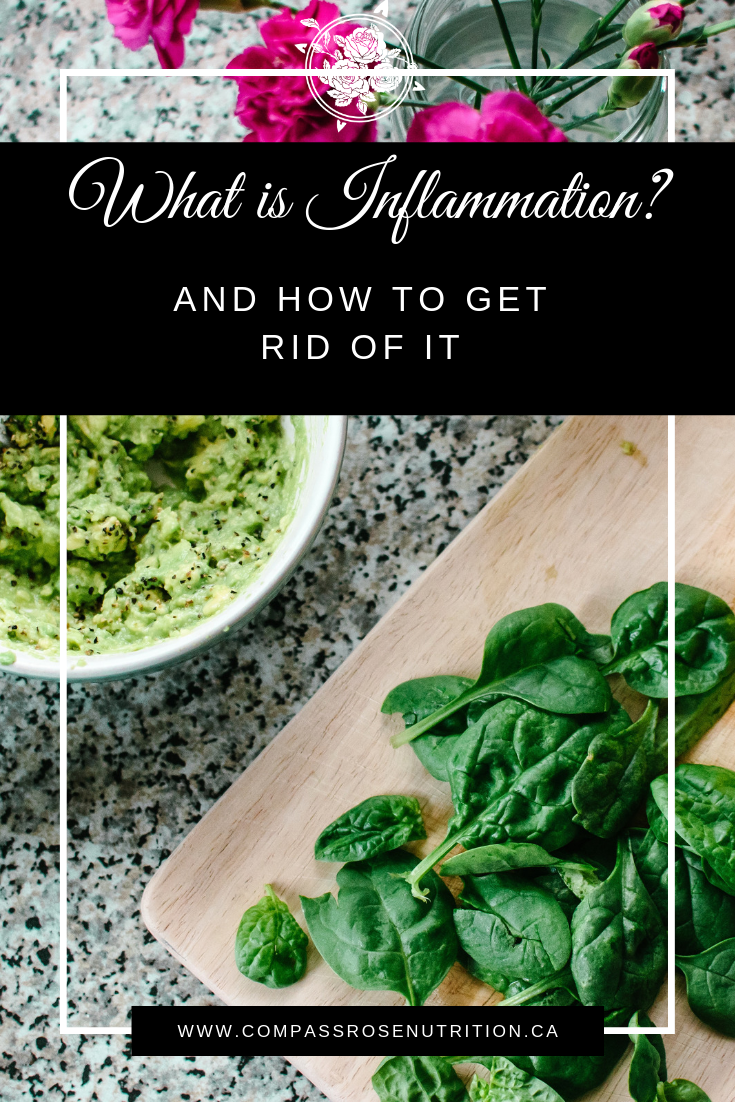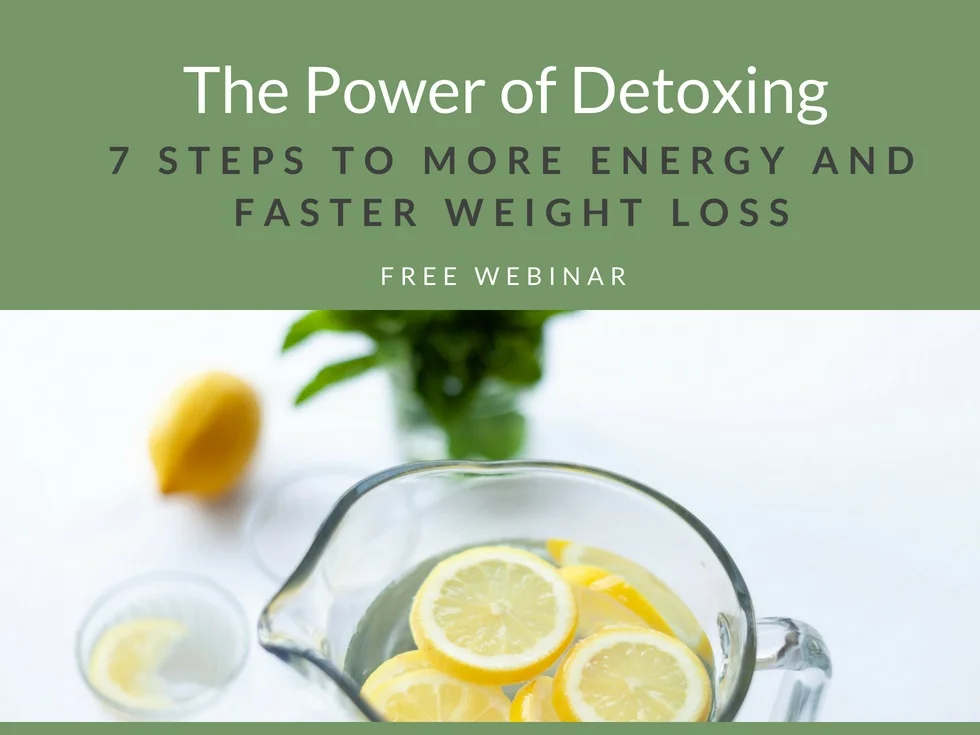Inflammation is a trending topic in the health & wellness world lately, and for good reason.
You may be hearing it from your doctor, a family member, a colleague, but let’s clear up what it is, how to recognize it and what to do about it.
According to LiveScience, “inflammation is a vital part of the immune system's response to injury and infection. It is the body's way of signalling the immune system to heal and repair damaged tissue, as well as defend itself against foreign invaders, such as viruses and bacteria.”
Sounds like a pretty beneficial and necessary physiological process, right? So, is there actually a downside to inflammation?
Yes! The downside is when inflammation becomes widespread and unrelenting in the body.
However, there’s a pretty big difference between acute inflammation, as described above, and the more detrimental, disease-promoting type of chronic inflammation.
acute inflammation
When physical injury damages your cells, the immune system swings into action releasing antibodies and proteins, as well as increases blood flow to the area.
Common signs & symptoms that an acute inflammatory response is at work:
Immediate response, lasting days or weeks
Redness
Heat or warmth
Swelling
Pain and discomfort
Immobility in the affected area
Chronic Inflammation
Persistent and chronic inflammation, on the other hand, is when this response lingers, leaving your body in a near-constant state of “attack”, with widespread systemic effects - sometimes for years.
Common signs & symptoms that chronic inflammation is happening in the body:
Can last months or years
Fatigue
Fever
Rashes or other skin afflictions
Abdominal or chest pain
Many autoimmune conditions are also considered to have chronic inflammatory components, including:
Multiple sclerosis (MS)
Rheumatoid arthritis (RA)
Psoriasis & psoriatic arthritis
Inflammatory bowel disease (IBD), like Crohn’s disease and ulcerative colitis
What can I do about chronic inflammation?
There are a number of lifestyle tips for someone experiencing this persistent type of inflammation, or who wants to prevent it from (re)occurring.
Here’s a short list:
Quitting smoking
Reducing stress, and getting adequate sleep
Exercising regularly and moving your body daily
Reducing alcohol consumption
Re-evaluating your diet, which may include taking supplements known to reduce inflammation
ANTI-INFLAMMATORY DIET
As a Nutrition Coach, I include food in my programs, but that’s not the only part. However it IS an important part. If you want to reduce inflammation for overall good health, your diet plays a huge role! The focus should be on whole foods that contain a wide variety of nutrients.
Think about which foods give you the best bang for your nutrient buck!
Basically, you want to eat more anti-inflammatory foods and fewer inflammation-promoting foods, which means avoiding processed “food-like products” whenever possible.
Specific foods that are known to fight inflammation:
Fruit like tomatoes, citrus, apples, berries, and cherries - especially tart Montmorency cherries
Leafy greens & cruciferous vegetables like broccoli, kale and Brussels sprouts
Fatty fish & other healthy fats like nuts, seeds, avocados, olives & olive oil
Aromatic spices like turmeric, cinnamon, fenugreek
Green tea
Dark chocolate and raw cacao powder
And not surprisingly, you will want to reduce or eliminate the following:
Refined carbohydrates & processed/packaged foods
High amounts of sugar & high fructose corn syrup (HFCS)
Fried food & “franken fats” like margarine
Pop and other highly sweetened drinks, including most fruit juices
Red meat & processed deli meats
Alcoholic beverages (although red wine in moderation has been shown to have some benefits for warding off inflammation; up to 5 oz per day for women and 10 oz per day for men)
ANTI-INFLAMMATORY PHARMACEUTICALS
Be sure to consult with a qualified medical practitioner before using any of the following pharmaceuticals & supplements commonly prescribed to help reduce inflammation. I just want to include them in this blog so you are aware of their anti-inflammatory support.
NSAIDs (non-steroidal anti-inflammatory drugs, like naproxen, ibuprofen and aspirin corticosteroids like prednisone and cortisone
Statins (usually prescribed for high cholesterol and arterial inflammation)
Supplements like fish oil, devil’s claw, turmeric, ginger, resveratrol and willow bark (known as “nature’s aspirin”)
Summing it all up…
So, to answer the question: “Should I be concerned with inflammation?”
If you’re striving to keep yourself healthy for the long run, and you want to know what single thing you should be paying (more) attention to in your health optimization routine - it’s INFLAMMATION.
There’s no question that persistent, chronic inflammation is unhealthy and can lead to disease, and has been shown to be an underlying common denominator in many serious health conditions.
The reality is that your diet and lifestyle is either helping to keep inflammation at bay or it’s driving it. This is why you should aim to include as many anti-inflammatory foods in your daily diet as possible to lower your risk of disease, and for optimal health and wellbeing.
Are you ready to clean up your life, and diet a little bit? Watch this free training to get some tips to getting started.
The Power of Detoxing- 7 Steps To More Energy and Faster Weight Loss
Related reading:
Reduce Inflammation With These Key Foods
Life Hacks Of The Longest Lived People
REFERENCES
LiveScience: What is inflammation?
Harvard Health: Foods That Fight Inflammation
Healthline: Anti-inflammatory Diet 101 - How to Reduce Inflammation Naturally
Cleveland Clinic: Why You Should Pay Attention to Chronic Inflammation
CanPrev: Deep Dive Into Chronic Inflammation




